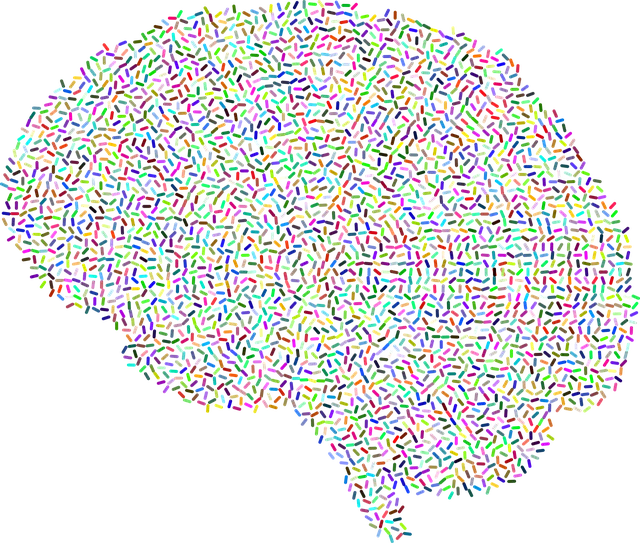The Kaiser Permanente mental health center in Wheat Ridge leverages RFM (Reach, Frequency, Engagement) data to optimize patient care, especially for mental health services. By analyzing these metrics, they identify at-risk patients and implement tailored interventions like workshops on depression prevention or conflict resolution. Resilience building exercises are a key part of their holistic support, empowering individuals with mindfulness, stress management, and self-care practices. Implementing the RFM framework involves staff education, integrating mindfulness into care plans, promoting open conversations about mental health, and encouraging compassion cultivation. This approach has shown significant success in fostering emotional regulation and overall well-being among patients and healthcare professionals.
“Discover how Kaiser Permanente Wheat Ridge has pioneered an innovative approach to patient care through RFM (Resilience, Flexibility, and Mastery) implementation. This article explores the powerful impact of resilience-building exercises on mental health support within a leading healthcare provider.
From understanding RFM’s foundational role in enhancing patient well-being to providing practical guides for professionals, we delve into successful case studies and offer strategies for seamless integration. Learn how these programs at Kaiser Permanente’s Wheat Ridge mental health center are revolutionizing care.”
- Understanding RFM and Its Impact on Patient Care at Kaiser Permanente Wheat Ridge
- The Role of Resilience Building Exercises in Mental Health Support
- Implementing RFM: A Step-by-Step Guide for Healthcare Professionals
- Case Studies: Success Stories from Kaiser Permanente's RFM Programs
- Overcoming Challenges: Strategies for Effective RFM Integration and Sustainability
Understanding RFM and Its Impact on Patient Care at Kaiser Permanente Wheat Ridge

At Kaiser Permanente Wheat Ridge, understanding RFM (Reach, Frequency, and Engagement) is key to enhancing patient care, especially in the realm of mental health services. This data-driven approach allows healthcare providers to identify patients who may be at risk or in need of additional support. By analyzing reach—how many people are accessing services—frequency of visits, and engagement levels, the mental health center can tailor interventions to improve overall well-being.
For instance, recognizing lower engagement rates among certain patient groups could prompt the implementation of targeted programs like Depression Prevention workshops or Conflict Resolution Techniques sessions. Such initiatives ensure that patients receive proactive care, fostering a more resilient mindset and improving their ability to navigate life’s challenges.
The Role of Resilience Building Exercises in Mental Health Support

Resilience building exercises play a pivotal role in mental health support, especially at centers like Kaiser Permanente mental health center Wheat Ridge. These exercises are designed to equip individuals with the tools needed to navigate life’s challenges and maintain emotional balance. By incorporating practices such as mindfulness, stress management techniques, and self-care routines, participants gain a deeper understanding of their emotional responses and learn how to regulate them effectively.
This proactive approach not only enhances overall mental well-being but also fosters a sense of control and empowerment. At Kaiser Permanente mental health center Wheat Ridge, the focus is on holistic healing, where resilience building exercises complement traditional therapy methods. Through regular practice, individuals can improve their ability to cope with stress, cultivate positive self-care practices, and develop emotional regulation skills that can be applied in daily life, ultimately contributing to improved mental health outcomes.
Implementing RFM: A Step-by-Step Guide for Healthcare Professionals

Implementing RFM (Resilience, Flexibility, and Mindfulness) at a Kaiser Permanente mental health center in Wheat Ridge can be a transformative process for both healthcare professionals and the community they serve. Here’s a step-by-step guide to facilitate this integration:
1. Educate and Train: Begin by providing comprehensive training sessions for staff, focusing on the principles of RFM, including resilience building, flexibility in approach, and mindfulness techniques. This can involve workshops, webinars, or even peer-led training to ensure everyone understands their role in fostering a resilient environment.
2. Integrate into Care Plans: Once understood, healthcare professionals should incorporate RFM practices into daily care routines. This might include guided meditation sessions during intake, resilience-focused group discussions, or mindfulness exercises tailored to individual patient needs. For instance, teaching patients at the Kaiser Permanente Wheat Ridge center simple breathing techniques can be a powerful tool for managing stress and anxiety, enhancing overall mental wellness.
3. Promote Mental Health Awareness: Through RFM, healthcare providers can encourage open conversations about mental health, reducing stigma. Regularly highlighting the importance of mental health awareness and resilience within the center’s community can foster a culture where individuals feel supported and empowered to take charge of their mental wellness.
4. Encourage Compassion Cultivation Practices: RFM encourages empathy and compassion towards both patients and colleagues. Healthcare professionals should be encouraged to engage in practices that cultivate compassion, such as mindful listening or kindness training, which can improve patient satisfaction and create a more positive work environment.
Case Studies: Success Stories from Kaiser Permanente's RFM Programs

Kaiser Permanente, a renowned healthcare provider, has been at the forefront of integrating Resilience-Focused Mental Health services, particularly through their programs based on the RFM (Recovery, Flexibility, and Mastery) framework. The Kaiser Permanente mental health center in Wheat Ridge has become a beacon for those seeking to enhance their emotional regulation and build resilience. Their innovative approach involves tailored exercises designed to empower individuals in managing stress, adversity, and fostering a sense of well-being.
These RFM programs have garnered significant attention through various case studies, showcasing remarkable success stories. Participants report improved coping mechanisms, enhanced ability to navigate life’s challenges, and better overall mental wellness. The Mental Wellness Podcast Series Production, which highlights these journeys, underscores the impact of resilience-building exercises in transforming lives. Through sharing these success tales, Kaiser Permanente emphasizes the importance of emotional regulation as a cornerstone for personal growth and recovery, inspiring others to explore similar initiatives for their own mental health journeys.
Overcoming Challenges: Strategies for Effective RFM Integration and Sustainability

Implementing RFM (Resilience, Flexibility, and Mindfulness) practices at Kaiser Permanente mental health center Wheat Ridge can be a game-changer in fostering resilience among patients. Overcoming challenges associated with integrating these strategies into therapeutic routines requires careful planning and adaptability. One key approach is to customize RFM techniques to suit diverse patient needs, ensuring that each individual feels empowered to develop coping skills tailored to their unique circumstances.
Educating both patients and healthcare providers about the benefits of RFM is essential for sustainability. By promoting mental health awareness and providing practical tools for stress reduction methods, the center can create a supportive environment where resilience becomes a cultivated trait. Regular workshops, group sessions, and accessible online resources can facilitate continuous learning and encourage individuals to integrate these practices into their daily lives, ultimately leading to improved well-being and enhanced therapeutic outcomes at Kaiser Permanente mental health center Wheat Ridge.
The implementation of RFM (Resilience, Flexibility, and Mastery) programs at Kaiser Permanente Wheat Ridge has demonstrated significant benefits for patient care. By integrating resilience-building exercises into mental health support, the healthcare center has fostered a more adaptive and resilient environment. The step-by-step guide provided offers a practical framework for other healthcare professionals to adopt similar initiatives, as evidenced by successful case studies from Kaiser Permanente. Overcoming challenges through strategic planning and community engagement ensures the long-term sustainability of RFM programs, ultimately enhancing patient outcomes at mental health centers like Kaiser Permanente Wheat Ridge.






